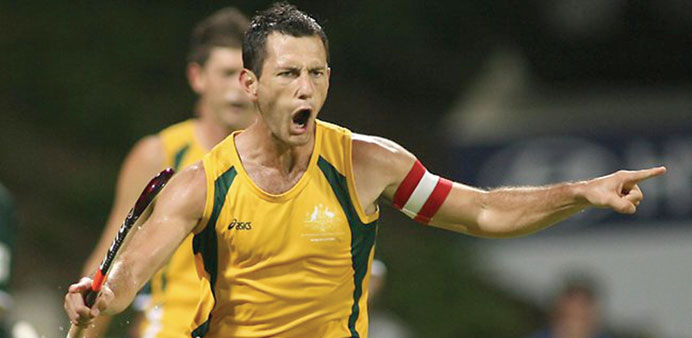IANS/Ipoh, Malaysia
V R Raghunath successfully converted a penalty corner to help the Indian hockey team hold South Korea 2-2 in their first match of the 24th Sultan Azlan Shah Cup tournament at the Azlan Shah Stadium here yesterday.
India scored through Nikkin Thimmaiah (11th minute) and Raghunath (56th) while South Korea got their goals from Hyesung Hyun (25th) and Seongkyu Kim (53rd).
Paul van Ass-coached India started positively in the first quarter of the game and attacked from both the flanks but they were impeded by the Korean defence.
The Indian team took the lead and scored the first goal of the match in the 11th minute through Thimmaiah’s field goal.
Putting all efforts to equalise the scores, South Korea’s counter attack was cleverly quelled by defender Birendra Lakra who swept the ball outside and cleared for India.
India dominated the first quarter and the score read 1-0 till the first 15 minutes.
At the start of the second quarter, India kept attacking the Korean defence as Dharamvir Singh passed the ball to Ramandeep Singh who surged ahead but his attempt was saved by the Korean goalkeeper.
Some good interplay was seen between the Indian boys but all their efforts went in vain when Korea netted the equaliser in the 25th minute by Hyun who flicked inside the net to go 1-1 into the half-time.
Unfolding the third quarter, India comfortably went on attack, not giving the Korean team an easy time. But the Koreans showed their attacking skills and defender Rupinderpal Singh was called into action.
India’s goalkeeper P R Sreejesh seemed to be a bit cautious on the rival flanks when Korea attempted twice and saved them successfully. By the end of the third quarter, the scores were deadlocked at 1-1.
In the last quarter, the game reached an intense phase where both the teams were evidently under a constant pressure to score. The momentum shifted towards the Koreans in the 53rd minute and they took the lead through Kim’s field goal. India equalised as Raghunath successfully converted a penalty corner in the 56th minute and managed a 2-2 draw.
Today, World No.9 India will face World No.7 New Zealand.
Earlier, in his record-breaking 322nd appearance for the Australian hockey team, veteran Jamie Dwyer showed that he is still as goal-hungry as ever, scoring the side’s fourth goal -- and his 207th -- in a 7-0 trouncing of Canada in a match of the Sultan Azlan Shah Cup tournament here yesterday. Olympic gold medallist and two-time World Cup-winner Dwyer went past former midfield maestro Jay Stacy’s record of most number of matches. Stacy, who retired in 2000, played 321 matches.
In the opening match of the six-nation tournament, Tim Cross, making his debut for the Kookaburras, set things in motion with his first goal just 12 minutes into the match.
It was followed a minute later by young Dylan Wotherspoon’s first goal in just his fifth appearance, putting Australia in the driving seat.
Despite the World Champions’ dominance over the 15th-ranked Canadians, it remained 2-0 until shortly before three-quarter time when Eddie Ockenden struck a third.As the match entered its final ten minutes, Dwyer struck to mark his return to senior international hockey in style after almost nine months away due to injury.
His last game, and last goal, came in June’s World Cup final 6-1 demolition of the Netherlands with Dwyer not selected for the Commonwealth Games and ruled out of the Champions Trophy in December.
With the goal, the floodgates opened. Just 60 seconds later, forward Trent Mitton made it 5-0, closely followed by a Glenn Simpson penalty corner goal and a strike by Jake Whetton, who rounded off the scoring for 7-0.
Since his debut in May 2001, Rockhampton-born Dwyer, 36, has been at the forefront of the Kookaburras’ most notable successes.
Named hockey’s World Player of the Year five times, he is arguably best known for scoring the winning goal against the Netherlands in the 2004 Olympic final in Athens, which earned Australia’s men’s hockey team its first ever Olympic gold medal.
He has since gone on to help Australia win two further Olympic bronze medals in Beijing and London.

Australian veteran Jamie Dwyer was on target as his team beat Canada 7-0.
